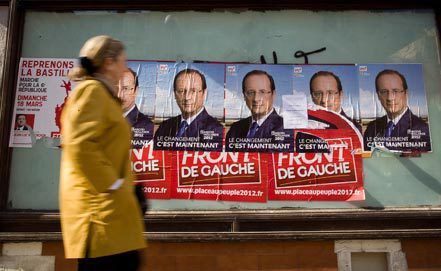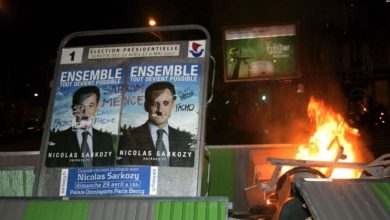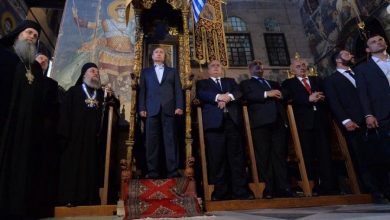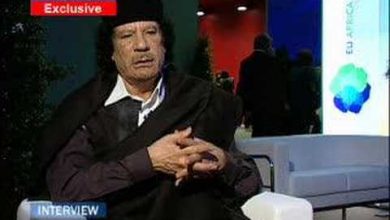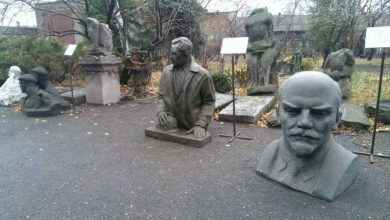Election campaign launched in France
In France, the countdown began before the start of the presidential election. Despite the fact that the election marathon de facto started six months ago, it is precisely today that the election campaign takes over officially – exactly two weeks before the 1st round, as the Constitution of the Fifth Republic prescribes.
The elections will be overseen by the Constitutional Council. It was created in 1958. Prior to this, the French president was elected by the parliament, and not in the direct voting of citizens. It is the Constitutional Court that belongs to the prerogative of announcing the results of the presidential election and, as a result, the name of the new owner of the Champs Elysees.
This year, the OSCE Office for Democratic Institutions and Human Rights decided not to send its monitoring mission to the French elections, despite the fact that Paris had made an invitation in advance. The legitimacy of the electoral process in the field is monitored by authorized representatives of the same Constitutional Council. They are appointed from among the judiciary or the local administration after consultation with higher authorities. Their number, as a rule, ranges from 1200 to 1800 people. Candidate representatives may also be present at the sites.
The 2012 presidential election is attended by 10 candidates. There were twelve of them in the last election, and in 2002 in the first round 16 candidates challenged the right to occupy the highest state post.
Today, the top five leaders of opinion polls include incumbent President Nicolas Sarkozy, his main rival, socialist Francois Hollande, representative of French nationalists Marine Le Pen, spokesman for the ideas of the extreme left opposition, Jean-Luc Melanshon, as well as centrist Francois Bayrou. Among the outsiders of the race: green candidate Eva Joli, a breakaway from the ruling party and ranking himself as a “Gaullist” Nicolas Dupont-Enian, trade unionist Philippe Putou, communist Natalie Artaud, and 70-year-old Jacques Sheminade, the most “candidate”.
In the history of the Fifth Republic, all presidential elections were held in two rounds. Today, there are also few who doubt the other scenario, since not one of the applicants can boast a significant advantage. In anticipation of the first round, the leader of the polls is Sarkozy (about 29 percent), followed immediately by Hollande, who a few months ago was considered an indisputable favorite. According to experts, these two candidates are most likely to enter the second round on May 6.
The election platforms put forward by them are fundamentally different in many ways, as befits a dispute between two principled rivals. Nicolas Sarkozy, who is running for a second term, has chosen fiscal discipline and austerity policies as the leitmotif of his campaign to overcome the consequences of the crisis in Europe. If elected, he promised to bring France to a deficit-free budget by 2016, which will happen, if it happens, for the first time in 40 years.
Socialist Francois Hollande, on the contrary, is convinced that “tightening the belts” will negatively affect the purchasing power of the French, domestic demand and, as a result, will undermine the restoration of the country’s economy. He promised to create 60 thousand new jobs in government agencies, return to the previous retirement age of 60 years, and introduce a “supertax for super-rich” at the level of 75%.
The preferences and aspirations of the French will become a little more definite in two weeks, when about 44 million registered voters will be invited to express their will. Local observers do not rule out surprises. Preliminary polls suggest that in the first round, absenteeism can reach quite high rates, as it was in 2002.
In total, about 65 thousand polling stations will be opened in the country. French living abroad will be able to vote at embassies and consulates. On the territory of the Russian Federation, plots will be opened in Moscow, St. Petersburg and a number of other cities.
Sarkozy is making sacrifices
French president changes image to be re-elected
In France, the election campaign officially started. In pursuit of voters, Nicolas Sarkozy, dreaming of re-election, seems to have decided to change his image and abandon the diet, the commitment of which he declared in many interviews. Now the president, who forbade serving cheese dishes to the table at the Champs Elysees, decided to give up on his waist and eat cheese again in the hope that the French would like it, who, unlike him, like cheese. It is no coincidence that when France refused to support the United States in the war against Saddam Hussein, irritated Republicans in the United States in their hearts called the French “cheese-eating cowardly monkeys.”
The Daily Telegraph reported a ban on cheese in the diet of the head of state, citing Bernard Voisson, the chef of the Champs Elysees, who is already feeding the fifth French president. According to him, Sarkozy carefully follows the menu and prefers light, balanced food. For example, he not only banned cheese, but also ordered the replacement of red meat with chicken. In the field of nutrition, Nicolas Sarkozy is under the complete influence of his wife. Carla Bruni, who, by the way, was 13 years younger and a supermodel earlier, immediately after the wedding insisted that the president eat less and play more sports. Under the clear guidance of his wife, Sarkozy, who had previously adored chocolate, refused sweets, switched to fish, vegetables and fruits and stopped drinking wine, without which most Frenchmen do not see a normal lunch or dinner. A healthy lifestyle resulted in a swoon during a morning run several years ago.
However, now President Sarkozy, in pursuit of voters, seems to have decided to change his culinary tastes. At an election rally in Annecy, he visited a cheese factory and before he went to try cheese fondue, he joked that he would recover by three kilograms after this trip. Demonstratively chewing cheese, Sarkozy is trying to lure rural voters, who now support Marine Le Pen, the leader of the National Front, claiming that she defends the interests of rural France. Voisson’s secret hopes that with the advent of a new master, cheese will return to the Champs Elysees menu may not come true. The main contender for the presidency, Francois Hollande, who has never been slim, is also on a diet and wants to get rid of the unpleasant nickname “flanby” by the name of the popular French dessert.
Of course, the list of know-how of President Sarkozy with the help of which he intends to win the election campaign is not limited to just battles on the gastronomic front. Last week, for example, he revealed his economic cards. In the coming years, Sarkozy intends to reduce government spending by 40 billion euros and replenish the treasury with new taxes by 13.5 billion euros. The main goal of the government should be a balanced budget by 2016. The President also believes that in 2013 public debt will reach a maximum of 89.4% of GDP, and by 2017 it will drop to 80.2%. Sarkozy promises to freeze the growth of deductions from France to the EU budget and save on this for 600 million euros annually. He reaffirmed his previous promise not to raise taxes for big business and his determination to withdraw France from the Schengen agreements if the borders of Europe are not strengthened. In the hope of his eloquence, the president proposes to spend two days before the first round, instead of one round of television debate.
This post is also available in:
 English
English  Русский (Russian)
Русский (Russian)

